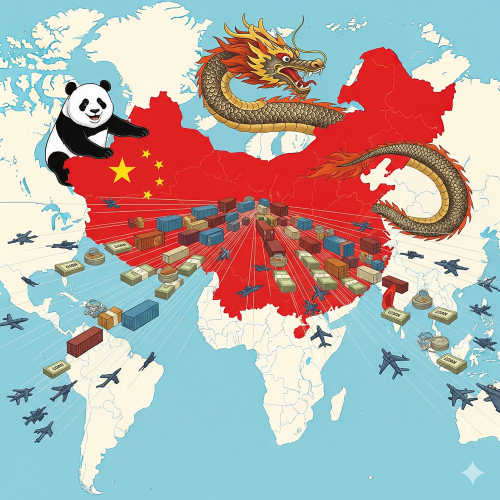How significant are Chinese investments in U.S. real estate, agriculture, and businesses to national security concerns?

Chinese investments in U.S. real estate, agriculture, and businesses are considered significant to national security, but the nature and severity of the threat vary by sector. The U.S. government, particularly through the Committee on Foreign Investment in the United States (CFIUS), is increasingly scrutinizing these investments, especially when they involve proximity to military bases or access to critical technology and sensitive data.
Real Estate: Proximity and Strategic Assets
Chinese investments in U.S. real estate raise national security concerns primarily when they involve land near sensitive military installations or critical infrastructure. While the overall percentage of U.S. land owned by Chinese entities is small, the location of some of these purchases has triggered alarm.
-
Military Proximity: A key concern is that land purchases near U.S. military bases could be used for intelligence gathering or surveillance. The 2022 purchase of farmland by a Chinese food manufacturer near the Grand Forks Air Force Base in North Dakota led to a high-profile case that was ultimately blocked due to national security concerns. The base is home to sensitive military drone and satellite technology, and officials feared the land could be used to install listening devices or disrupt military communications. This incident, along with others, has led to a push for state-level laws restricting land purchases by foreign adversaries, with some states like Texas and Florida passing legislation to address the issue.
-
Dual-Use Capabilities: Some real estate investments, such as those in ports or logistics hubs, could have dual-use capabilities, meaning they could be used for both commercial and military purposes. For example, a Chinese-owned port terminal could provide a logistical base for the Chinese navy in a time of conflict.
However, many real estate investments are not viewed as a threat. The majority are commercial and residential properties that do not raise national security flags. The focus of the U.S. government and state legislatures is on targeting and blocking a small number of strategic acquisitions rather than a blanket ban on Chinese investment.
Agriculture: Food Security and Espionage
Chinese investment in U.S. agriculture is a complex and highly debated topic in the context of national security. Concerns fall into two main categories: food security and the risk of espionage.
-
Food Security: While the amount of U.S. agricultural land owned by Chinese entities is less than 1% of all foreign-owned farmland, some policymakers argue that any foreign control over America's food supply is a long-term risk. They point to the possibility that in a crisis, a foreign adversary could disrupt the food supply chain, impacting domestic supply and prices.
-
Espionage and Intellectual Property Theft: A more pressing concern is the theft of agricultural intellectual property, such as genetically modified seeds and advanced farming technologies. There have been a number of documented cases where Chinese nationals were convicted of attempting to steal agricultural trade secrets. These cases highlight the risk that Chinese companies could acquire U.S. agricultural businesses not just for the land, but for the intellectual property and research and development that underpins America's agricultural dominance.
The U.S. Department of Agriculture (USDA) and CFIUS have enhanced their oversight of foreign agricultural land acquisitions, particularly those near sensitive military sites, to address these concerns.
Businesses: Technology, Data, and Industrial Base
Chinese investments in U.S. businesses, particularly in the tech sector, are the most significant source of national security concerns. The focus of U.S. regulators and intelligence agencies is on protecting critical technology, sensitive data, and the U.S. industrial base.
-
Technology and Intellectual Property: China's "Military-Civil Fusion" strategy, which aims to leverage civilian technology for military purposes, is a key driver of U.S. concern. Chinese firms acquiring stakes in U.S. technology companies, from semiconductors to artificial intelligence, could gain access to cutting-edge research and intellectual property that could be used to enhance China's military and intelligence capabilities. CFIUS has blocked several of these deals and required Chinese investors to divest from U.S. firms.
-
Sensitive Personal Data: The acquisition of U.S. companies that hold large amounts of sensitive personal data on American citizens is another major risk. The most high-profile example is TikTok, which is owned by Chinese company ByteDance. U.S. officials have expressed concern that the Chinese government could compel ByteDance to hand over U.S. user data or manipulate the app's algorithm to influence public opinion. This has led to a push for a potential ban or forced sale of the app.
-
Critical Infrastructure: Chinese investments in U.S. critical infrastructure, such as ports, energy grids, and telecommunications networks, are also a major concern. The fear is that a foreign adversary could gain control over these assets and use them for espionage or sabotage in a time of crisis. This has led to heightened scrutiny of any Chinese investment in these sectors.
In conclusion, the significance of Chinese investments to U.S. national security is not uniform. While real estate and agriculture investments are a concern when they involve strategic locations or intellectual property theft, it is the investments in U.S. businesses, particularly those in the technology, data, and critical infrastructure sectors, that pose the most serious and complex threats to the U.S. industrial base, technological edge, and national security. The U.S. government's response, led by CFIUS, has been to adopt a more aggressive and targeted approach to screening and blocking these strategic investments.
- Questions and Answers
- Opinion
- Motivational and Inspiring Story
- Technology
- Live and Let live
- Focus
- Geopolitics
- Military-Arms/Equipment
- Security
- Economy
- Beasts of Nations
- Machine Tools-The “Mother Industry”
- Art
- Causes
- Crafts
- Dance
- Drinks
- Film/Movie
- Fitness
- Food
- Games
- Gardening
- Health
- Home
- Literature
- Music
- Networking
- Other
- Party
- Religion
- Shopping
- Sports
- Theater
- Health and Wellness
- News
- Culture

